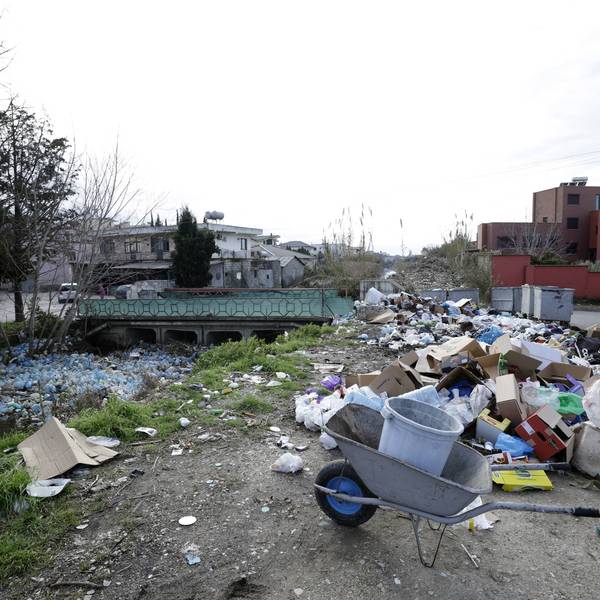In a move welcomed by conservationists, the executive arm of the European Union (EU) on Monday proposed a ban on 10 common single-use plastics that, together with fishing gear, account for about 70 percent of marine litter across Europe.
The European Commission's ban would apply to bags; balloons and balloon sticks; chips and candy wrappers; cigarette butts; cotton buds; cups and lids; cutlery, straws, and stirrers; drink bottles; food containers; and sanitary applications.
"The only way to stop plastics pouring into our oceans is to turn off the flow at its source: production."
--Lasse Gustavsson,
Oceana Europe
The plastics proposal was widely embraced by conservation campaigners, though they challenged European leaders to go further.
"The only way to stop plastics pouring into our oceans is to turn off the flow at its source: production. By reducing the amount of unnecessary plastic we produce, we can make a real difference to the global marine litter crisis," Oceana Europe executive director Lasse Gustavsson said in a statement.
While applauding the step, Gustavsson emphasized that the ban should "stretch to all single-use plastic products throughout the European Union," explaining that "the plastics problem is not only on our beaches. Oceana has discovered plastic litter in the depths of our deep blue seas."
The European Commission estimates that if implemented, the measure would save consumers EUR6.5 billion and prevent 3.4 million tonnes of carbon emissions as well as EUR22 billion in other environmental damage by 2030.
The new rules would be applied differently for each product, aim to make it competitive for European companies to produce sustainable alternatives, and would be implemented as EU leaders work to finalize existing policies to address plastic fishing gear, which accounts for more than a quarter of beach litter across Europe.
The proposal still needs the approval of the 28 member states plus the European Parliament. The European Commission on Monday urged the EU's other institutions to "treat this as a priority file, and to deliver tangible results for Europeans before the elections in May 2019."
"This Commission promised to be big on the big issues and leave the rest to member states," said the EU's First Vice President Frans Timmermans. "Plastic waste is undeniably a big issue and Europeans need to act together to tackle this problem, because plastic waste ends up in our air, our soil, our oceans, and in our food."




